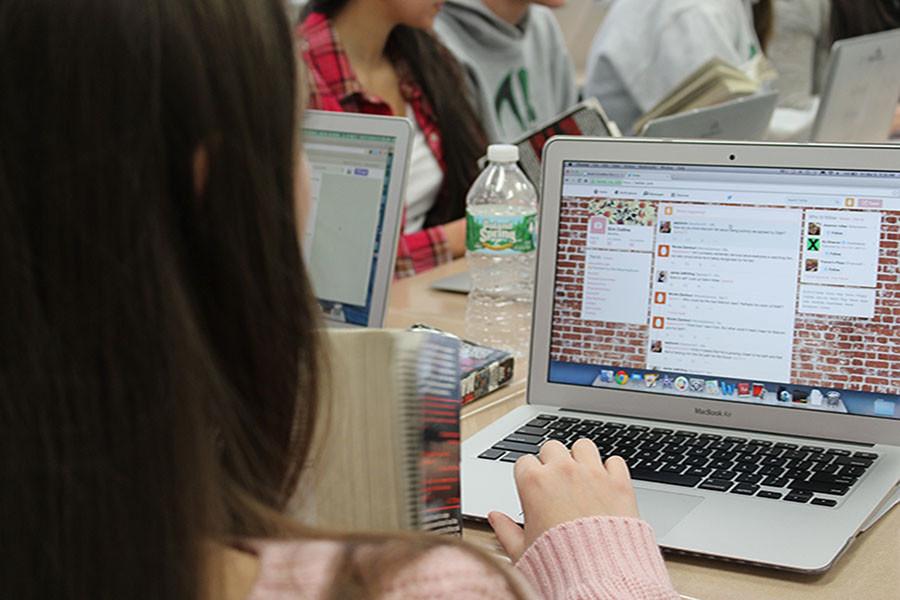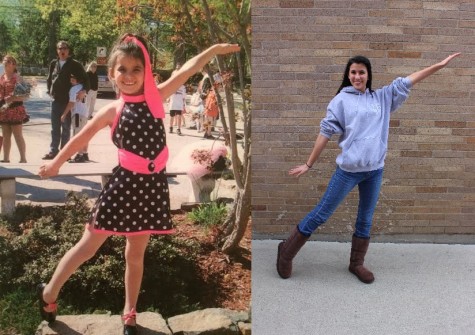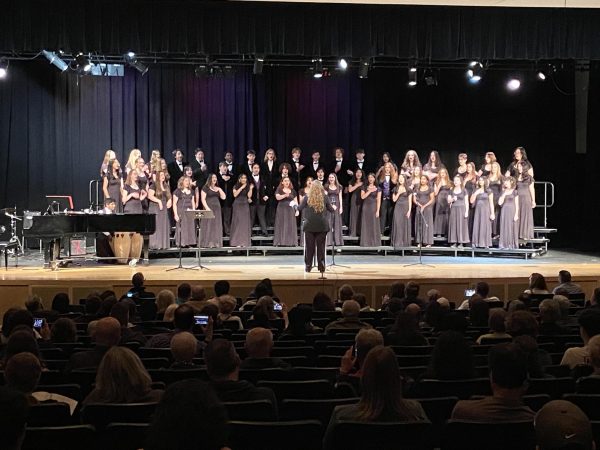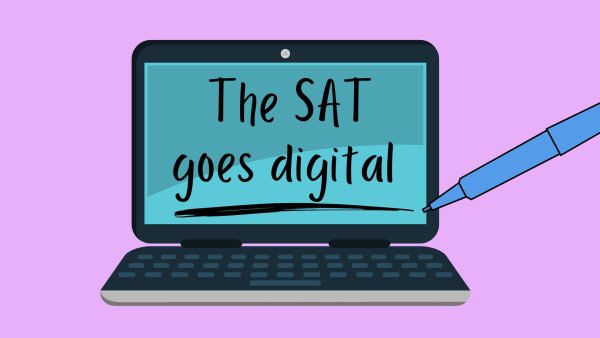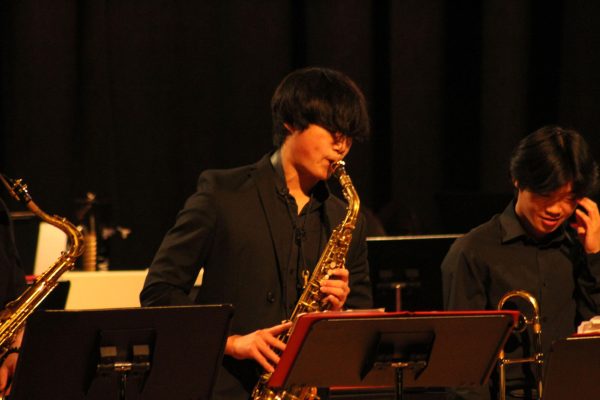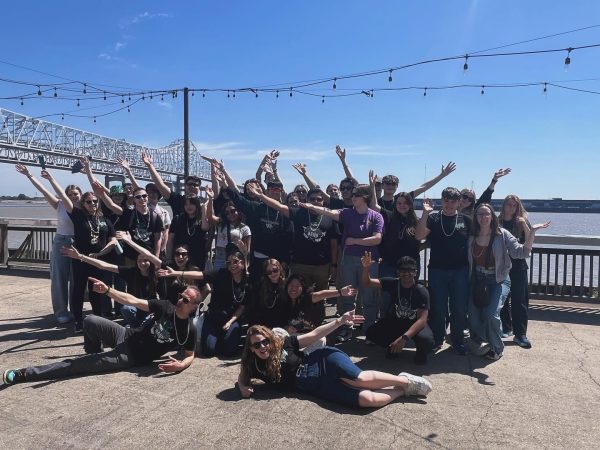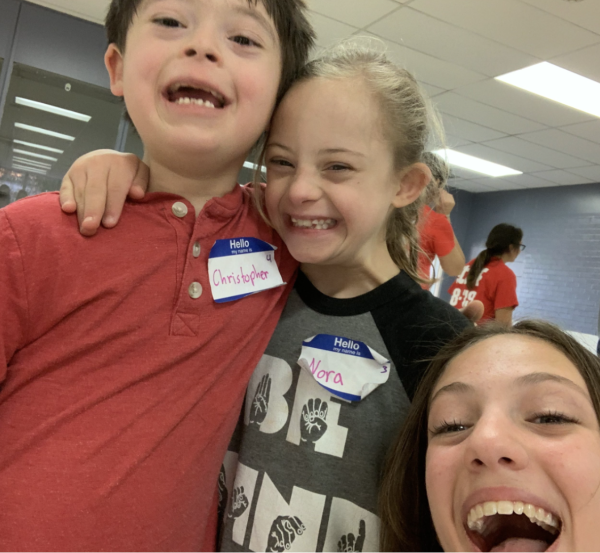Is Twitter taking over the school?
Teachers, students weigh pros and cons of the social media service
Twitter seems to be a curse and a blessing.
So many of us use this social networking site as an excuse to doing work. So many of us use Twitter to express thoughts that we wouldn’t say in person. So many of us constantly hunt around for “Twitter-worthy” subjects.
There is no point in falling into denial because everyone knows it’s true.
However, the big question is: Is all of this what we should be doing?
“Twitter is a great way to take small bits of information and get them out to the masses by writing 140 characters or less,” said chemistry teacher Mr. Christopher Nilsen.
Twitter can be utilized to a person’s needs and wants, from taking selfies to following celebrities to voting for the winners on American Idol.
TWITTER (sometimes known as Typing What I’m Thinking To Everyone Reading) is a very easy way to post our thoughts to our followers.
Mr. Matthew Morone, an English teacher, thinks that students should be able to use Twitter because it is similar to using the Internet.
“If you were to ask any teacher in 2015 whether their students should be able to use the Internet, the answer, I think, should be obvious,” Morone said. “There are a lot of bad sites on the Internet. However, are those bad sites a reason not to use this amazing tool called the Internet? Of course not.
“And I think Twitter is the same way. There are a lot of ways that Twitter can distract people. There are a lot of ways to waste time on Twitter, there are a lot of ways to get off topic on Twitter. But there are also a lot of really effective ways to use it. The most beneficial aspect of Twitter is that it gives everybody an equal voice. That is, hands down, the most important thing.”
Everyone is bound with the same limit of 140 or less characters and the same audience (the world, one follower at a time) to say it to.
“You have seen this with a lot of protestors recently and a lot of civil uprisings like during the Arab Spring Movement in the Middle East. We saw all these people who have been held down for so long by restraining government regimes, that were finally able to express themselves and their beliefs and their thoughts. A lot of times, Twitter and hashtags and things like that can serve as a nice way to collect and organize people’s thoughts. The civic value is the most important part of Twitter,” Morone continued.
An important aspect that Nilsen mentioned is the broadcasting of current events through this site. In places where there is no freedom of speech and/or freedom of the press, Twitter can be utilized to organize and rally people rapidly. It assists society in expressing their thoughts and wants on passionate topics.
The people of the Twitterverse also have the advantage of following whomever they want whenever they want, whether it is a friend, a celebrity, or a cause. Once they follow this person/group, they can see everything that they tweet on their personal timeline.
However, Twitter can turn into a disaster if used the wrong way.
Freshman Carleigh Boyle said, “It can be either a good thing or a bad thing. Either you can be really socialized and have fun with it or you can get cyber-bullied and look up really inappropriate things. It is a bad influence on society because the people that use Twitter all the time could either not be paying attention to what’s happening on the outside world because they are looking up random pictures or they could be cyberbullying.”
People can decide that it’s funny or amusing to torture others online and make them look bad. They take obnoxious photos of others and post them, write discouraging things about individuals, or literally put them down.
Not only is cyber bullying a problem, but so is recklessness. “I think that the problem with Twitter is that people can write things that they haven’t thought about,” said Nilsen.
It seems that everyone has experienced a scenario where they wished they could take back something they had made public. Suddenly, the ground rushes up beneath them and they realize that once they put something on the Internet, it will stay there for #forever.
Even though people know they are at risk, they keep using Twitter because it is so addicting. It can take over their lives to the point where they can’t go a day without using it – especially in class.
Teachers do not think that it’s a big deal if students check it once during class, but if they’re on the site for the whole period, it is considered a problem.
“I think that students spend more time than they should on Twitter because sometimes they are doing it when the teacher is talking and that’s not what they’re supposed to be doing,” said Boyle.
With today’s workload many students find themselves desperate for a distraction and then, voila, there is Twitter.
“If it is taking away someone’s focus in their classes, if the teacher expects them to be paying attention to a video or a lecture in class and the student is on Twitter, then I find that to be an irresponsible use,” Morone said.
On the other hand, some teachers use Twitter to their advantage. There are special hashtags that teachers use to share and post lesson plans with each other. In other scenarios, students are instructed by their teachers to post pictures and/or explanations on Twitter that are class-related.
“I get a lot of lesson ideas from seeing what other teachers are doing on Twitter. There is a whole hashtag – Ed Chat – and its all for education discussion,” said Morone.
Therefore, even though Twitter can drive a class apart, it can also bring it together.
Using Twitter is pretty straightforward. But for many, the outcomes aren’t as such. There are several pros and cons of this website, and some students use it productively while others do not.
Most students are filled to the brim with common sense, but in the light of the moment, they can forget to be careful with what they tweet.
But that doesn’t stop anyone from using the site, does it?

